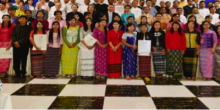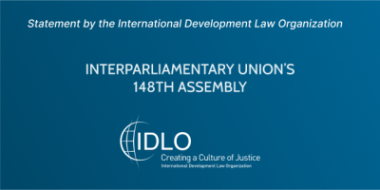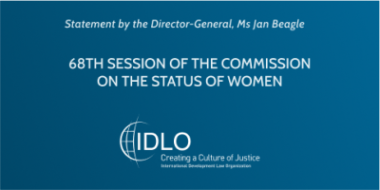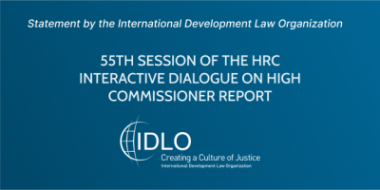31st Session of the Human Rights Council: 2030 Agenda for Sustainable Development and Human Rights
STATEMENT OF THE INTERNATIONAL DEVELOPMENT LAW ORGANIZATION
31ST SESSION OF THE HUMAN RIGHTS COUNCIL
ANNUAL HIGH-LEVEL PANEL ON HUMAN RIGHTS MAINSTREAMING
"THE 2030 AGENDA FOR SUSTAINABLE DEVELOPMENT AND HUMAN RIGHTS, WITH AN EMPHASIS ON THE RIGHT TO DEVELOPMENT"













